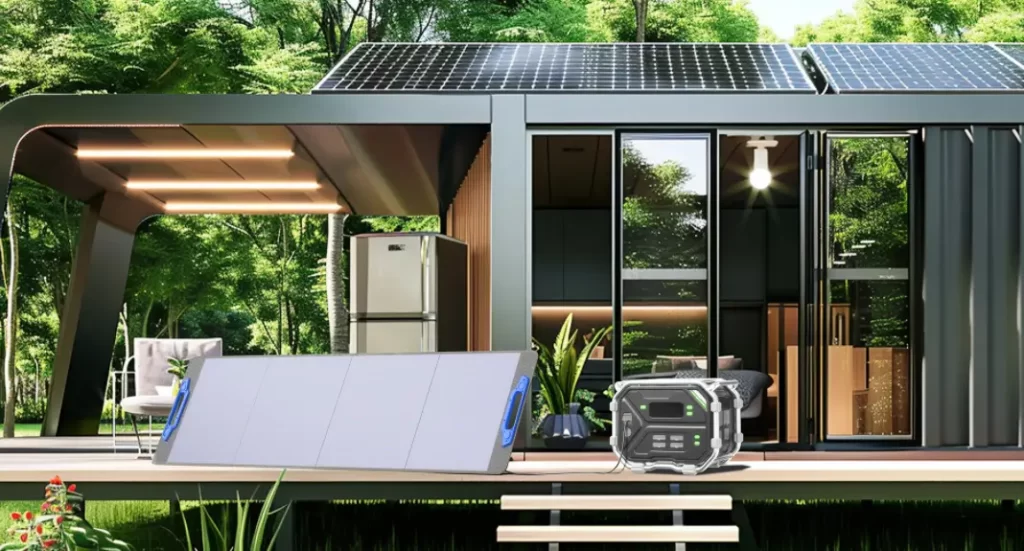
The increasing global emphasis on renewable energy sources has spurred significant advancements in solar technology. Among these innovations, portable solar systems have emerged as a versatile and sustainable solution for a variety of applications. This article delves into the intricacies of portable solar systems, examining their components, functionality, benefits, and potential impact on various sectors.
Components and Functionality
A portable solar system typically comprises several key components: photovoltaic (PV) panels, a charge controller, a battery storage unit, and an inverter. Each plays a crucial role in the system’s operation:
Photovoltaic Panels: These panels capture sunlight and convert it into direct current (DC) electricity through the photovoltaic effect. The efficiency of PV panels has improved dramatically over the years, making them more effective even in less-than-ideal conditions.
Charge Controller: This device regulates the voltage and current coming from the PV panels to the battery. It ensures that the battery is charged efficiently and prevents overcharging, which can damage the battery and reduce its lifespan.
Battery Storage Unit: Energy produced by the PV panels during daylight hours is stored in batteries for use when sunlight is unavailable. Advances in battery technology, particularly lithium-ion batteries, have enhanced the storage capacity and longevity of these units.
Inverter: Since most household appliances and electronic devices operate on alternating current (AC), the inverter converts the DC electricity stored in the batteries into AC power.
Benefits of Portable Solar Systems
Portable solar systems offer numerous advantages, making them an attractive option for a wide range of users:
Mobility and Flexibility: As the name suggests, portable solar systems are designed for mobility. They can be easily transported and set up in various locations, making them ideal for outdoor activities such as camping, boating, and remote work sites.
Sustainability: By harnessing the sun’s energy, portable solar systems provide a clean and renewable source of power. This reduces reliance on fossil fuels, decreases greenhouse gas emissions, and contributes to environmental conservation.
Energy Independence: Users of portable solar systems gain a degree of energy independence, reducing their dependence on conventional power grids. This is particularly beneficial in areas prone to power outages or in remote regions without access to grid electricity.
Cost Savings: While the initial investment in a portable solar system can be significant, the long-term savings on energy costs can be substantial. Additionally, the decreasing cost of solar technology is making these systems more affordable over time.
Quiet Operation: Unlike generators, which can be noisy and require fuel, portable solar systems operate silently and require minimal maintenance, enhancing user comfort and convenience.
Applications Across Sectors
Portable solar systems have found applications across various sectors, demonstrating their versatility and utility:
Emergency Response and Disaster Relief: In the aftermath of natural disasters, portable solar systems can provide critical power for communication devices, medical equipment, and lighting, aiding rescue and relief efforts.
Agriculture: Farmers can use portable solar systems to power irrigation pumps, electric fences, and other equipment, promoting sustainable farming practices and reducing operational costs.
Military Operations: For military personnel operating in remote or hostile environments, portable solar systems offer a reliable and secure power source, reducing the logistical challenges associated with fuel supply lines.
Education: In developing regions, portable solar systems can power educational facilities, providing students with access to lighting, computers, and internet connectivity, thereby enhancing learning opportunities.
Recreational Activities: Outdoor enthusiasts, including campers and hikers, can utilize portable solar systems to charge electronic devices, power lights, and run small appliances, enhancing their outdoor experience while minimizing their environmental footprint.

Future Prospects
The future of portable solar systems looks promising, driven by ongoing technological advancements and growing awareness of renewable energy’s benefits. Innovations such as flexible solar panels, improved energy storage solutions, and integrated smart technologies are expected to further enhance the efficiency, affordability, and usability of these systems.
As the world continues to grapple with climate change and energy challenges, portable solar systems represent a practical and impactful solution. By embracing this technology, individuals and organizations alike can contribute to a more sustainable and resilient energy future.
In conclusion, portable solar systems offer a compelling blend of mobility, sustainability, and efficiency. Their diverse applications and potential to drive positive environmental and economic outcomes make them a valuable asset in the quest for renewable energy solutions.



